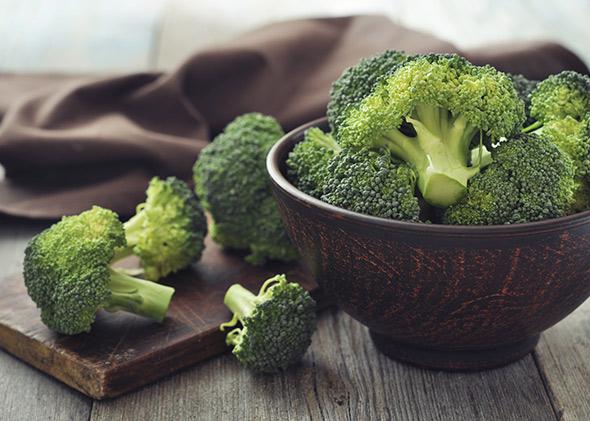One thing that distinguishes humans from animals is our odd and sometimes intense affection for foods that objectively taste bad. In nature, a bad taste is usually a stark warning to stay away from a poisonous plant, say, or a rotting, germ-infested carcass. Yet we’re constantly bending and breaking that evolutionary rule. Many nations have horrible-tasting dishes that locals savor. Icelandic hákarl is fermented, cured Greenland shark, which the Vikings invented by burying hunks of meat in the sand for months. It smells and tastes like rotting fish marinating in ammonia. Some bad tastes show up in food everywhere. Bitterness is the most universal of these. By itself, it’s distinctly off-putting, evoking a distinctive wince. But in beer, coffee, broccoli, or a thousand other items, bitterness becomes an essential counterpoint to other, pleasanter flavors.
For some reason, we systematically disregard the visceral messages of awful tastes. Why?
The ability to taste bitterness, like the four other “basic” tastes the tongue can detect (sweet, salty, sour, and umami, or savory), is biologically ancient, predating humanity by hundreds of millions of years. Jellyfish, fruit flies, and bacteria all can sense bitter compounds. Many of those compounds are defensive chemicals, toxic in high enough doses, made by plants to ward off disease, insects, or hungry animals.
There are hundreds of known bitter compounds, probably far more—in nature, they vary mile by mile depending on the local plant life. As a rule, primates, and mammals in general, have a great range of sensitivity to bitterness, something that served early humans well as they migrated from Africa and settled in new habitats. It’s kind of amazing that body and brain have a system that reliably generates an identical sensation from so many distinct molecules. Our basic sensitivity is enabled by our taste genes, each of which hold the DNA code for a particular kind of receptor protein on the tongue. There are two dozen bitter taste genes—far more than for any other basic taste—and each has many variations. The most well-studied of these is TAS2R38. The ability to taste a certain bitter chemical called 6-n-propylthiouracil, or PROP, reveals which version of this gene you have, and whether you’re a “supertaster,” highly sensitive to bitterness and strong flavors in general; a “taster,” with moderate sensitivity; or a “nontaster,” unable to detect PROP and less sensitive overall.
These genetic differences create perceptual shadings that play out in our likes and dislikes. Nontasters (including me) are naturally more accepting of hints of bitterness in food than others. Our genes make us insensitive to the bad taste—it’s muffled, a form of contrast rather than irritation. Others are sensitive to certain bitter items but not others. Weirdly, for example, nontasters can detect the bitterness in the fruit of a south Asian plant, the bignay or Antidesma bunius, while tasters can’t. And some people can barely abide any bitterness.
Add into this mix human adaptability. We are the descendants of wandering hunter-gatherers with a powerful ability to learn from experience: Like them, we can train our palates and brains to extract some pleasure from almost any kind of food. A study of the Aymara, an indigenous people in the mountains of Peru, found that although their genes inclined them to despise bitterness, their diets depended on a highly bitter strain of potatoes. So they liked them. Necessity and culture defeated genetics. The more modest modern counterpart to this is that over time, many people who start out baffled anyone could like beer eventually enjoy it.
There’s another force at work here, too. Scientists have struggled to understand why there is so much variation in bitter taste genes. If bitter stuff is bad for you, in other words, why doesn’t everybody just equally despise it and be done with it?
One reason may be because many bitter compounds are good for you. Glucosinolates, for example, a family of bitter compounds present in broccoli, Brussels sprouts, and other cruciferous vegetables, have proven health benefits; among other things, they seem to play a role in cancer prevention. The medicinal value points to this broader mystery. Your bitter genes don’t merely influence the way your food tastes or your diet. They appear to have a broader influence on how the body works.
Since they were first identified about 15 years ago, bitter receptors have been found not just on the tongue but throughout the body—in the gut, the nose, the lungs, and the brain. They’re part of a kind of shadow taste system that plays various roles—still mostly unknown—in keeping the body healthy. One study found that being a taster helped in repelling sinus infections. Another, of residents of Calabria, Italy, found that one variation in a particular bitter gene was linked to living longer, and the difference didn’t seem tied to differences in eating habits. Natural selection may have tuned human bitter sensitivities in mysterious but beneficial ways. A little bitterness, however unpleasant, may be a boon. So put that in your espresso cup and sip it.
Read more about flavor, from its origins at the dawn of life, through the rise of civilization, up to the strange latter-day sensations created by the food system, in Tasty: The Art and Science of What We Eat.
